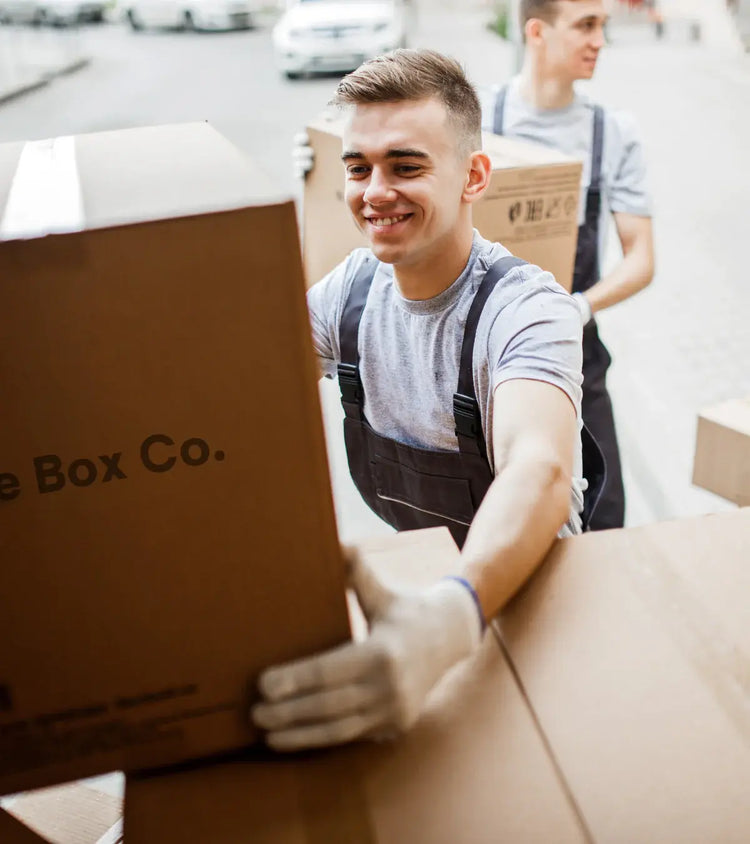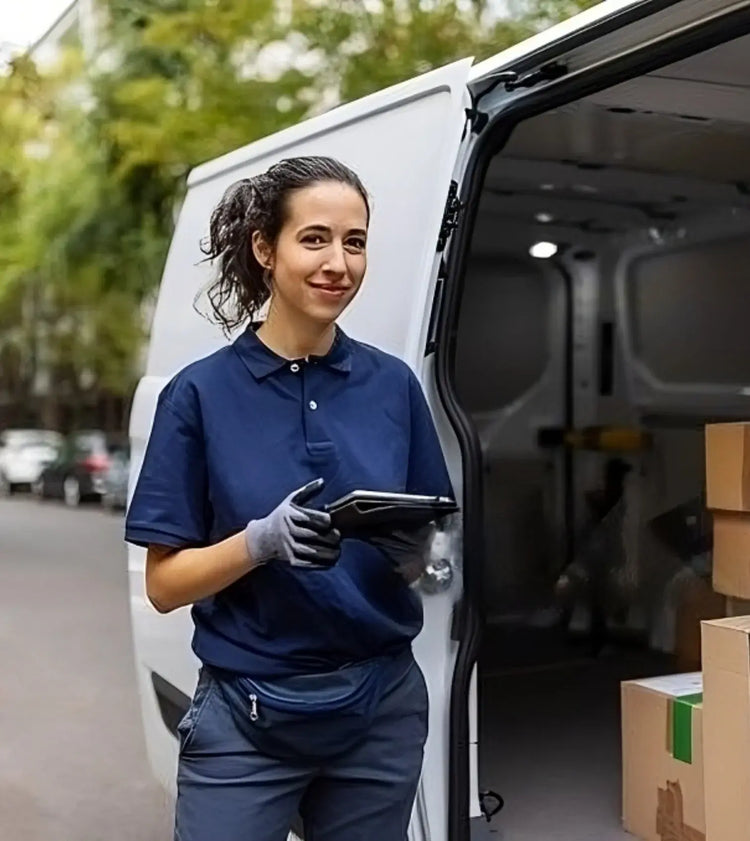
Our Ultimate Moving House Guide, London Edition

Share
Introduction
Moving house is a stressful and time-consuming process. Even with all the experience in the world, it can be hard to know where to start or how to get everything done. Luckily for those of us who have moved more than once, there are a wealth of tips out there for making this one of life’s most challenging tasks as easy as possible! We've put together our ultimate guide on moving from start to finish: from hiring professional movers and packing your stuff securely, through sorting out utility bills before you move day arrives and helping yourself declutter everything else that needs going too.
Where should I start with my move?
- Start with the basics. Before you get into the details of your move, there are some simple things that you must do first:
- Get a list of your belongings. You'll need this list when you start packing up your stuff and deciding what to take with you and what to leave behind.
- Get a quote from a removal company. This is just another way of saying "hire movers." It's important to get several quotes so that you can compare prices before making a decision about who should handle your move (if anyone).
- Decide what you want to do with your stuff once it arrives at its new home in London. Do you want someone else to sort through it? Is there any furniture or other items that don't belong in London anymore?
What if I don’t have everything sorted yet?
If you are not yet ready to move, but have decided that the time is soon approaching, here are a few tips on how to make sure your move goes as smoothly as possible.
- If you don’t have everything sorted yet, it can be stressful and frustrating. Don’t worry—we get it! The good news is that there are several options for getting organised:
- You could try using a professional moving company who will take care of all the heavy lifting (literally) so that all you have to do is pack up your belongings and transport them safely to their new home. Or…
- Alternatively, if you don’t have enough time or space in which to store all your stuff, consider renting storage facilities until such time as all tasks related with packing/unpacking can be completed without needing more than one room in which work can take place at once. Note also these are useful services even once everything has been packed up because they provide secure areas where items can be stored until needed again later down the road!
How do I pack my stuff securely?
In order to safely transport your belongings, you'll need to ensure they are packed correctly.
- Use strong boxes and bubble wrap. While it can be tempting to use old cardboard boxes from the garage or recycling centre, these tend not to be strong enough for moving house. You should instead buy new ones at a store like IKEA or B&Q (or even better yet, reuse some). You should also buy plenty of bubble wrap so that every fragile item is protected inside its own cocoon of protection—even if this means buying an entire roll!
- Pack your most valuable items first. The rule of thumb is: pack what matters most first. So if you want to keep your treasured photo albums safe during the move, those should go into one box before anything else gets packed away in another box with less important items like books and kitchenware in them (which can then have other stuff placed on top). This way when lifting things out later on they won't get damaged too easily by everything else piled up above them!
- Use blankets , towels and rugs . Blankets provide great insulation while softening any banging sounds made while moving furniture around; towels make good padding against walls when sliding heavy objects past them; rugs can absorb moisture if anything spills over onto floors during transit," writes Lifehacker contributor Jason Fitzpatrick."
Keep or throw away? Moving is the perfect time to declutter
It might seem counterintuitive to throw away things you own, but if you’re not using them and don't love them then they are weighing down your life. Keep only what you truly love and use regularly.
If you haven’t used it in the last six months, get rid of it. If there’s a box or filing cabinet filled with stuff that hasn’t been touched since the day it arrived at your house, get rid of it. If something has been sitting around for years because “you might need that one day… maybe…?” get rid of it! Even if there is still space left in your new home after all that purging—and this process should leave plenty—make sure not to move anything back into storage once everything is unpacked at your new house; otherwise the cycle will just continue indefinitely!
Put items you want to keep but don't need regularly into storage with a professional provider
If you're worried about storing your items, but don't want the expense of renting a place in London, just remember that there are many professional storage facilities available. There are two main types of storage: short-term and long-term. Short term is ideal if you're planning to redecorate or simply need somewhere to house some of your belongings until you've found the right location for them. Long term is best if you have items that will be staying with you for longer than six months before being used again. Both come with different fees and charges depending on the provider's policies (and sometimes their locations), so it's good to shop around when looking for the best option for your space needs!
Overwhelmed? Get help from your friends!
When moving house, you may feel overwhelmed by the prospect of packing, transporting and unpacking all your belongings. If this is the case, you could ask for help from friends and family members.
You could get a few people to help you with the packing, or even ask them if they would be willing to pack up one room at a time for you before it gets transported to the new home. If there are children in your household who have offered their services (and you don't mind their help), consider getting them involved too!
If it’s possible for someone else to do some of the heavy lifting – such as moving furniture - then it will make everything much easier on everyone involved.
What questions should I ask before moving into a new place?
Before you sign on the dotted line, there are several questions you should ask the owner or realtor of your new flat.
- What are the rules of the building? How much is rent per month, and how often will it be increased? Are pets allowed, and if so what breeds? Do I need to keep my shoes on when I open my front door?
- What are the rules of the apartment? Are smoking and cooking allowed in my bedroom (or any other part of my flat)? Am I allowed to have overnight guests—and if so, how many at a time—and am I allowed to throw parties (if not, why not)? If it’s an older property with no lift/elevator access, do they have stairs instead? Are there any dangerous spots where accidents could occur (like electrical sockets near water sources)?
- What are the rules of your neighbourhood? Is this street busy enough that cars park in front every day from 6 am until 9 pm; if so then parking might be difficult on weekdays but fine during weekends. Or maybe this area has few cars parked along its roads because most people working nearby live there; in which case finding an empty spot for your car each morning might mean waking up earlier than usual! What's more important—the convenience factor here or having easy access via public transport options such as buses/trams etcetera..."
The good news…
Moving house is an exciting time, but it can also be very stressful. Fortunately, there are lots of people and services available to help make the process easier. You can hire professional movers who will do all the heavy lifting for you; use a storage facility to store your belongings before moving into the new house; or even enlist some friends to help out on moving day!
If you’re feeling particularly adventurous, you could even learn more about your new neighbourhood by searching online for information such as local restaurants or nearby parks.
Moving house (especially to London) can be tricky but there are a lot of people who can help.
Moving house (especially to London) can be tricky but there are a lot of people who can help.
If you’re feeling overwhelmed by the thought of packing up all of your belongings, don’t worry about it too much. You don’t have to do everything yourself; ask for help from friends and family if possible. If not, there are plenty of professional movers in London who will gladly come to your home and pack everything up for you with minimal fuss or disruption. There are also storage providers available if you don't want to take any furniture with you when moving into your new home but still need somewhere safe where they can be stored until they're needed later on down the line - this is especially useful if you're planning on moving around more than once during the course of this year! The same goes for landlords: many landlords provide assistance with relocation services such as packing boxes or transporting heavy items through narrow staircases without causing damage!
Conclusion
Moving house is a stressful process but it doesn’t have to be. With a little bit of preparation, you can make sure that your move goes smoothly and without too much hassle. And if all else fails, don't forget about those friends who helped you when they moved into their new places! They might just be happy to lend a hand again.



